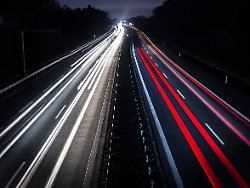State purchase premiums for cars with modern combustion engines seem to be off the table for now: top representatives from industry and politics hold a video conference to discuss how the automotive industry should proceed. Some questions are still open.
The ailing auto industry can hope for additional help for structural change. However, this is not about taking direct measures against the acute sales crisis, such as expanding the purchase premiums to modern gasoline and diesel cars – but rather about strengthening the equity of suppliers in particular. A working group is to examine whether and how a "market economy concept" could be developed by the next top-level meeting in November.
This emerges from a result paper of the "car summit". There is no mention of state purchase premiums for cars with modern combustion engines in the results paper. Suppliers in particular have come under pressure in the Corona crisis. On the other hand, according to the paper, it should be examined which other aspects should be taken into account in the "future investments" in the industry planned in the federal government's economic stimulus package. The top round also agreed to advance the digital transformation around cars and autonomous driving. The charging network for electric cars should become more customer-friendly.
Two billion euros for future investments
In addition to Chancellor Angela Merkel, federal ministers and representatives of car manufacturers and trade unions, Prime Ministers from "auto" countries also took part in a video conference that evening. In June the coalition decided on an additional program totaling two billion euros for future investments by vehicle manufacturers and the supplier industry. This is intended to promote investments in new technologies, for example. The Ministry of Economic Affairs is currently working on implementation. IG Metall, Greens and SPD had campaigned for a state investment fund to help medium-sized companies in the auto industry. Many medium-sized suppliers are still attached to the combustion engine, but have to invest a lot of money in structural change.
The CSU had renewed demands for combustion engine purchase premiums in order to stimulate the decline in demand during the Corona crisis. Modern gasoline and diesel cars could reduce CO2 emissions and help the industry out of the crisis. Cars with internal combustion engines are currently being produced on "stockpile", said Transport Minister Andreas Scheuer on "Deutschlandfunk": "They have to come from the farm." Scheuer warned of mass unemployment in the auto industry with hundreds of thousands of employees. Bavaria's Prime Minister and CSU leader Markus Söder said that many had not yet understood the seriousness of the situation. A large part of the wealth in Bavaria and Germany depends on the car.
Merkel had already dampened expectations before the conference. She made it clear that she does not assume that there will be a quick decision on further aid for the auto industry. In June the auto industry – and with it the heads of government of the "car countries" Bavaria, Lower Saxony and Baden-Württemberg – demanded state purchase premiums for combustion engines in the debate about an economic stimulus package. But that had failed because of the resistance, especially from the SPD leadership.
Electric car bonuses
Instead, the black-red coalition decided to lower VAT and significantly higher government premiums for the purchase of electric cars. New registrations of e-cars have risen significantly recently, but they are still at a low level. Manufacturers continue to do most of their business with the sale of gasoline and diesel cars. But their sales figures are falling. In addition, there are long delivery times for e-cars. The German automotive industry is facing major economic and structural challenges, according to the outcome paper of the auto summit. In order for Germany to remain a "technology-open, globally leading location" for the automotive industry, the challenges should now be addressed more intensively – new drive technologies, digitization, good employment and climate protection are mentioned.
Germany should take a leading role in autonomous driving. With the law on autonomous driving that is in preparation, Germany wants to be the first country in the world to allow driverless vehicles in regular operation as well as in the entire national area of application. The aim is to bring vehicles with autonomous driving functions into regular operation by 2022. In addition, a "mobility data room" is to be created. The automotive industry wants to make mobility data available "within the scope of the freedom of contract". When setting up a charging network for electric cars, economics and transport ministers are to meet "promptly" with the energy industry for a second top-level meeting.
Concrete agreements should be reached on a uniform payment system and customer-friendly use of charging stations. Associations such as the ADAC complain that very different price models have been used at public charging stations. SPD parliamentary group vice-president Sören Bartol said the e-premium was working. But for it to work, more charging stations are needed, and the expansion takes far too long. "We will keep an eye on developments at the suppliers in the coming weeks. I still think that transformation funds make sense, for companies that can realign themselves and for the development of new value-added clusters." The FDP transport politician Oliver Luksic criticized that the auto summit did not bring a break for the ailing vehicle construction: "Although the federal government is focusing on the right issues with guidelines for autonomous driving, mobility data and alternative fuels, it needs more implementation and fewer working groups.
.
